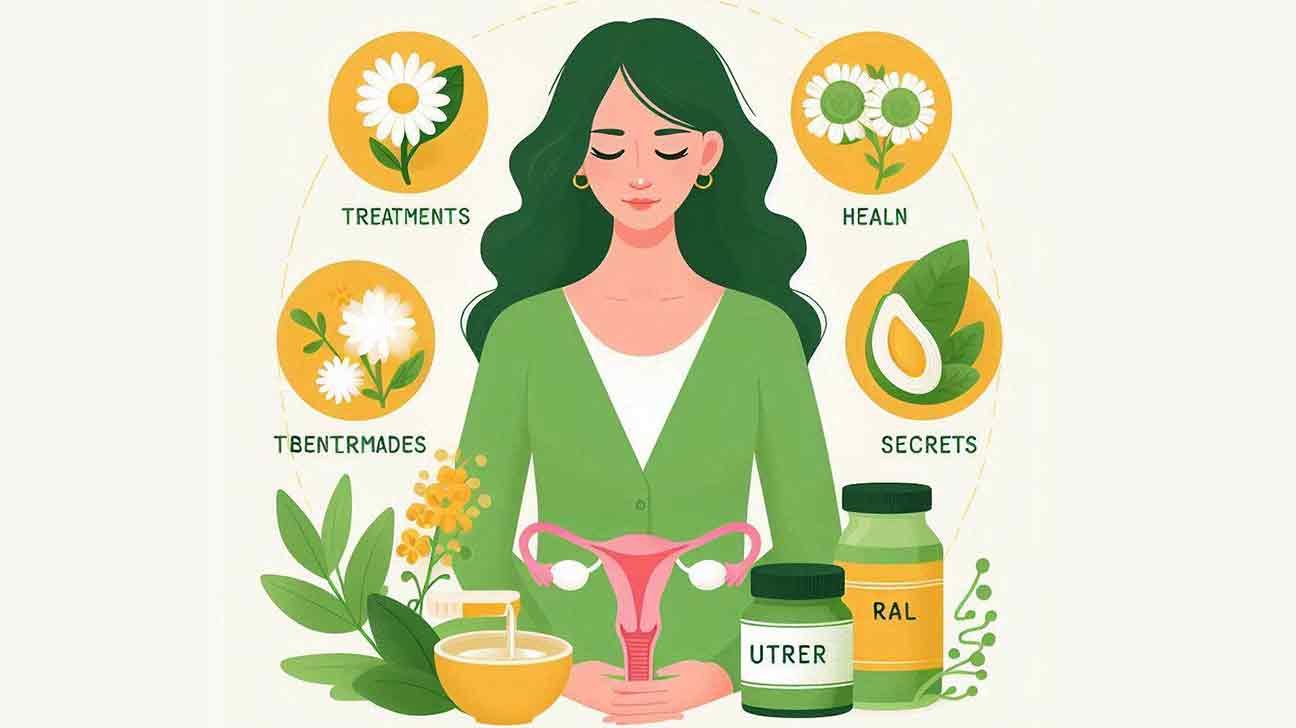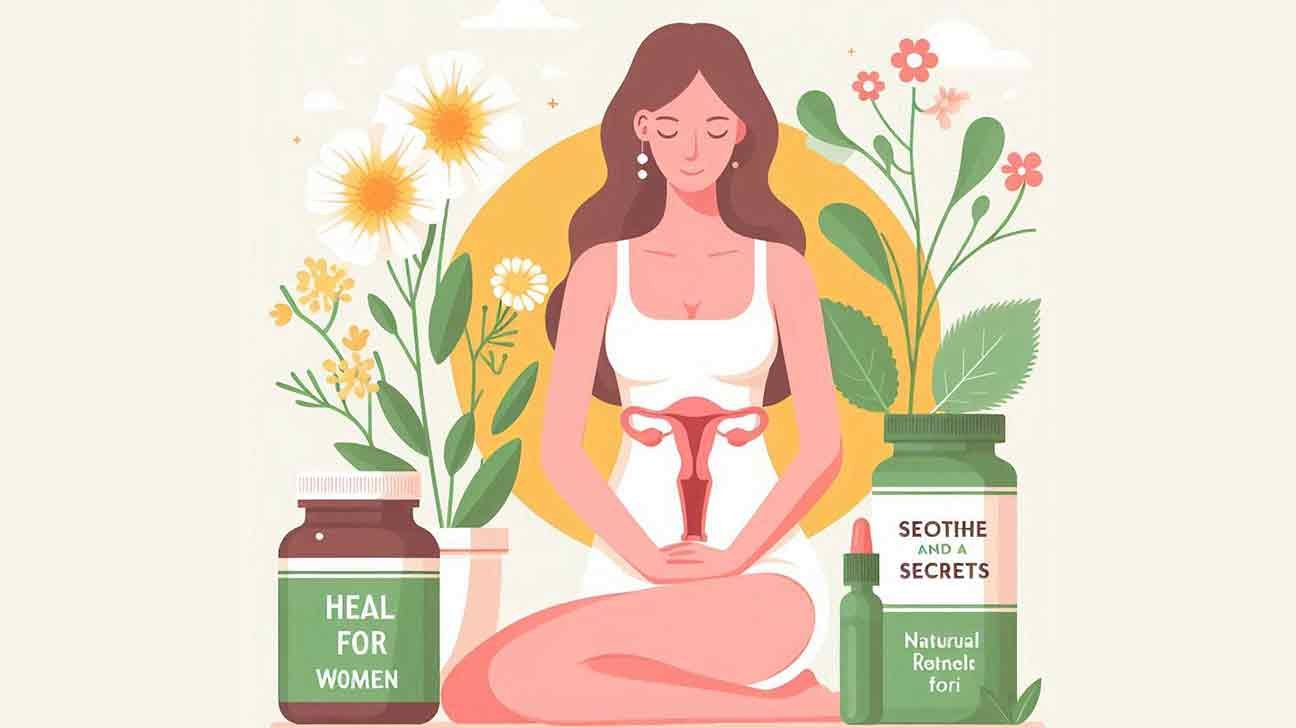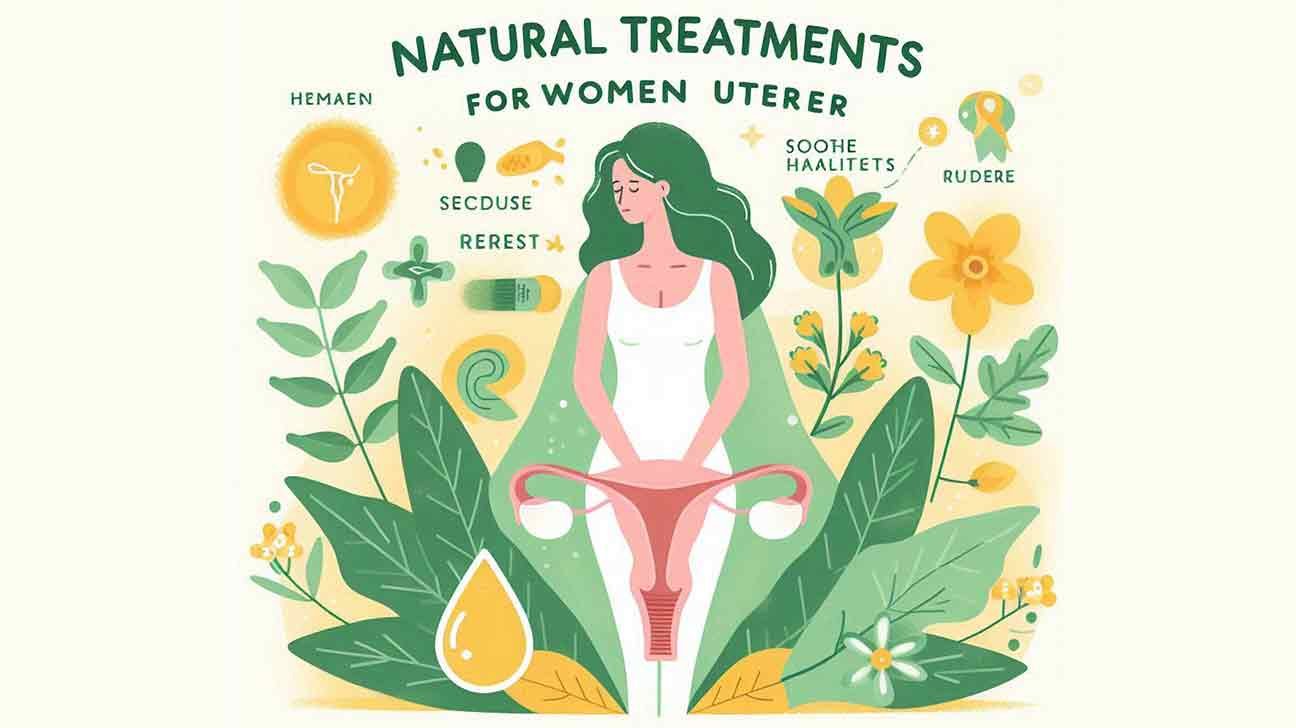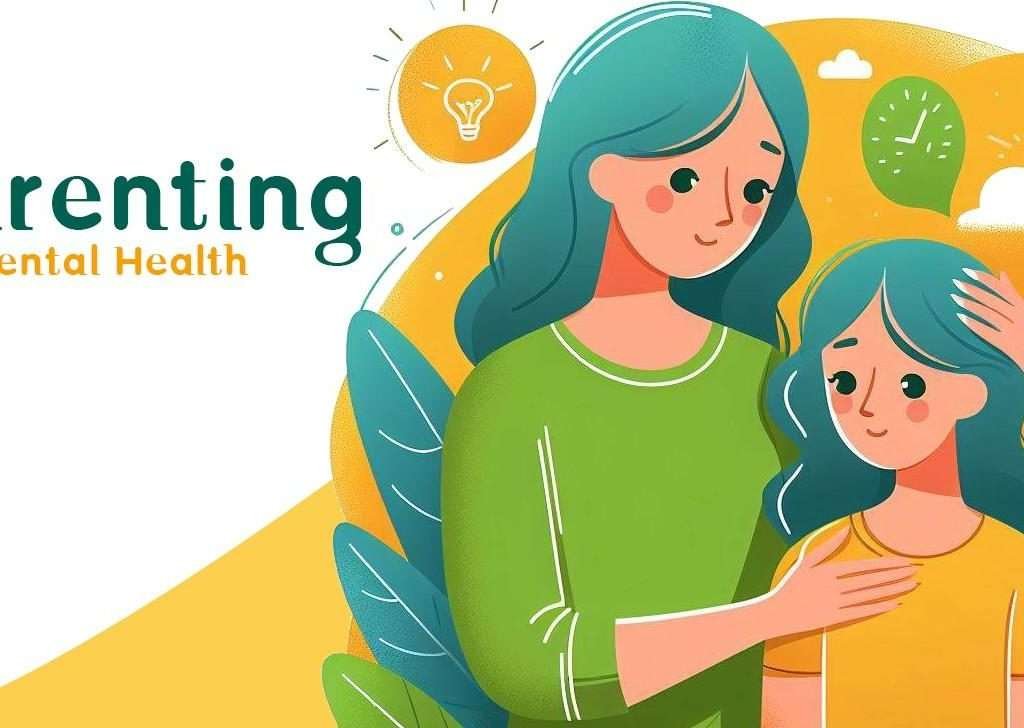
Natural treatments for vaginal atrophy include using vaginal moisturizers and lubricants, practicing pelvic floor exercises, and incorporating soy-based products into your diet. These methods can help alleviate symptoms and improve vaginal health.
Vaginal atrophy, also known as atrophic vaginitis, is a common condition that can cause vaginal dryness, itching, and discomfort. It is often a result of decreased estrogen levels, especially during menopause. Many women prefer natural treatments for vaginal atrophy as they can be effective and have fewer side effects compared to hormonal therapies.
By incorporating these natural remedies into your routine, you can manage symptoms and improve your overall quality of life.
Causes Of Vaginal Atrophy
When it comes to vaginal health, it’s essential to understand the causes of vaginal atrophy, also known as atrophic vaginitis. Vaginal atrophy occurs when the vaginal walls become thin, dry, and inflamed due to a decrease in estrogen levels, which can lead to discomfort and pain during intercourse. Several factors can contribute to this condition, including hormonal changes and certain medications. Understanding these causes is crucial for exploring natural treatments for vaginal atrophy.
Hormonal Changes
Vaginal atrophy is commonly linked to hormonal changes, particularly a decrease in estrogen levels. This decline in estrogen can occur during menopause, postpartum, or while breastfeeding. As estrogen plays a vital role in maintaining the health and elasticity of vaginal tissues, a reduction in its levels can result in thinning and drying of the vaginal walls. This can lead to symptoms such as vaginal dryness, itching, and discomfort during sexual activity.
Medications
Certain medications, such as those used for breast cancer treatment, endometriosis, or uterine fibroids, can contribute to the development of vaginal atrophy. These medications may interfere with hormone levels, particularly estrogen, leading to changes in the vaginal tissues. Additionally, long-term use of certain allergy and cold medications that contain antihistamines can also contribute to vaginal dryness and atrophy.
Traditional Medical Treatments
Vaginal atrophy is a common condition that affects many women, especially after menopause. Traditional medical treatments for this condition focus on hormone therapy and vaginal estrogen. While these treatments can be effective, they also come with risks and side effects. In this article, we will explore these traditional medical treatments for vaginal atrophy in detail.
Hormone Therapy
Hormone therapy is a treatment that involves taking estrogen and/or progestin to help relieve symptoms of menopause, including vaginal atrophy. It can be taken orally, applied as a patch, or inserted vaginally. While hormone therapy can be effective for relieving symptoms of vaginal atrophy, it comes with some risks and side effects.
Some of the risks associated with hormone therapy include an increased risk of breast cancer, heart disease, and stroke. Women who have a history of these conditions may not be good candidates for hormone therapy. Additionally, hormone therapy can cause side effects such as bloating, breast tenderness, and mood changes.
It is important to discuss the risks and benefits of hormone therapy with your healthcare provider before starting this treatment.
Vaginal Estrogen
Vaginal estrogen is a treatment that involves applying estrogen directly to the vaginal area to help relieve symptoms of vaginal atrophy. Its estrogen can be applied as a cream, tablet, or ring that is inserted into the vagina. This treatment can be effective for relieving symptoms of vaginal atrophy, and it is generally considered to be safer than hormone therapy.
Some of the risks associated with vaginal estrogen include an increased risk of blood clots and stroke. Women who have a history of these conditions may not be good candidates for vaginal estrogen. Additionally, vaginal estrogen can cause side effects such as vaginal irritation, discharge, and itching.
It is important to discuss the risks and benefits of vaginal estrogen with your healthcare provider before starting this treatment.
Overall, traditional medical treatments for vaginal atrophy can be effective for relieving symptoms, but they also come with risks and side effects. It is important to discuss these treatments with your healthcare provider to determine if they are right for you.
Natural Remedies
Introduction paragraph about Natural Treatments for Vaginal Atrophy and Natural Remedies…
Dietary Changes
When it comes to managing vaginal atrophy, making certain dietary changes can have a positive impact on your symptoms. By incorporating certain foods into your daily diet, you can promote hormonal balance and improve the overall health of your vagina. Here are some dietary changes you can consider:
- Increase your intake of phytoestrogen-rich foods such as soybeans, flaxseeds, and chickpeas. These foods contain plant-based estrogens that can help alleviate vaginal dryness and discomfort.
- Add more omega-3 fatty acids to your diet by consuming foods like fatty fish (salmon, mackerel), walnuts, chia seeds, and hemp seeds. Omega-3 fatty acids have anti-inflammatory properties and can help reduce vaginal inflammation.
- Include probiotic-rich foods in your meals, such as yogurt, kefir, and fermented vegetables. Probiotics help maintain a healthy balance of good bacteria in the vagina, which is essential for vaginal health.
- Stay hydrated by drinking plenty of water throughout the day. Hydration is crucial for maintaining the moisture levels in your body, including the vagina.
- Avoid or limit the consumption of caffeine, alcohol, and spicy foods, as they can worsen vaginal dryness and irritation.
By making these dietary changes, you can support your body’s natural healing processes and improve the symptoms of vaginal atrophy.
Vaginal Moisturizers
Vaginal moisturizers are an effective way to combat the dryness and discomfort associated with vaginal atrophy. These products are specifically designed to provide long-lasting moisture to the vaginal tissues. Here are some key points to consider when using vaginal moisturizers:
- Choose a vaginal moisturizer that is free from irritants and fragrances to minimize the risk of further irritation.
- Apply the moisturizer as directed, usually before bedtime or as needed throughout the day. It’s important to follow the instructions provided by the manufacturer.
- Consider using a water-based moisturizer, as it is less likely to cause irritation compared to oil-based or petroleum-based products.
- Discuss with your healthcare provider about using a vaginal moisturizer that contains hyaluronic acid or other natural ingredients known for their moisturizing properties.
- Regularly use the vaginal moisturizer to maintain optimal moisture levels and alleviate vaginal dryness.
Vaginal moisturizers can provide immediate relief from vaginal dryness and discomfort. However, it’s important to consult with your healthcare provider before using any new products to ensure they are suitable for your individual needs.
Herbal Supplements
Introduction paragraph about Natural Treatments for Vaginal Atrophy and Herbal Supplements…
Black Cohosh
Vaginal atrophy, a common condition caused by decreased estrogen levels, can lead to discomfort and dryness in the vaginal area. Herbal supplements, such as Black Cohosh, have been used for centuries to alleviate symptoms of menopause and promote hormonal balance. Black Cohosh is a herb native to North America and is known for its medicinal properties.
Black Cohosh works by interacting with the estrogen receptors in the body, helping to regulate hormone levels and reduce symptoms of vaginal atrophy. It contains compounds called phytoestrogens, which have estrogen-like effects on the body. These compounds can help to alleviate vaginal dryness, itching, and discomfort.
When considering the use of Black Cohosh as a natural treatment for vaginal atrophy, it’s important to consult with a healthcare professional, especially if you have any pre-existing medical conditions or are taking any medications. They can provide guidance on the appropriate dosage and potential interactions with other medications.
Red Clover
Another herbal supplement that may be beneficial in the treatment of vaginal atrophy is Red Clover. Red Clover is a legume that contains compounds called isoflavones, which have estrogen-like properties. These isoflavones can help to alleviate symptoms of vaginal dryness and improve overall vaginal health.
Red Clover has been used traditionally to treat menopausal symptoms, including vaginal atrophy. It can help to increase vaginal lubrication and reduce discomfort during intercourse. Additionally, Red Clover may have a positive effect on bone health, which can be beneficial for women experiencing hormonal changes.
As with any herbal supplement, it’s important to consult with a healthcare professional before incorporating Red Clover into your treatment plan. They can provide guidance on the appropriate dosage and potential interactions with other medications.
Lifestyle Modifications
Vaginal atrophy is a common condition among menopausal and postmenopausal women, characterized by a thinning, drying, and inflammation of the vaginal walls. While medical treatments are available, lifestyle modifications can also play a crucial role in managing the symptoms of vaginal atrophy. Making certain adjustments in your daily routine can help alleviate discomfort and improve overall vaginal health. In this article, we’ll explore two key lifestyle modifications – regular exercise and stress management – that can positively impact vaginal atrophy.
Regular Exercise
Engaging in regular physical activity can have significant benefits for women experiencing vaginal atrophy. Exercise helps improve blood circulation, which can promote vaginal tissue health and reduce discomfort. Additionally, maintaining a healthy weight through exercise can help alleviate symptoms such as vaginal dryness and irritation.
Here are some exercise options that can be beneficial:
- Aerobic exercises like walking, swimming, or cycling
- Strength training to maintain muscle tone
- Yoga or Pilates to improve flexibility and strengthen pelvic floor muscles
Stress Management
Chronic stress can exacerbate symptoms of vaginal atrophy, making it essential to incorporate stress-reducing practices into your daily routine. Stress management techniques can help regulate hormone levels and reduce inflammation, potentially alleviating discomfort associated with vaginal atrophy.
Effective stress management strategies include:
- Practicing mindfulness meditation or deep breathing exercises
- Engaging in hobbies or activities that bring joy and relaxation
- Seeking support from friends, family, or a therapist
Potential Risks And Side Effects
When exploring natural treatments for vaginal atrophy, it is crucial to be aware of the potential risks and side effects associated with these remedies. While natural options can offer relief and support vaginal health, they may also pose certain concerns that need to be considered.
Interactions With Medications
Some natural treatments for vaginal atrophy may interact with medications, leading to adverse effects. It is essential to consult with a healthcare provider before incorporating these remedies, especially if you are currently taking any medications. Here are some common interactions to be cautious about:
- Hormone-based treatments: Natural remedies like wild yam or black cohosh may interact with hormone replacement therapy or other hormonal medications.
- Herbal supplements: Certain herbs such as St. John’s Wort can interfere with the effectiveness of various medications.
Allergic Reactions
Individuals using natural treatments for vaginal atrophy should be mindful of potential allergic reactions that could occur. Even though these remedies are derived from natural sources, allergic responses can still manifest. Here are some key points to consider:
- Plant-based remedies: Ingredients like essential oils or plant extracts may trigger allergic reactions in sensitive individuals.
- Food-based treatments: Some natural treatments may contain food-based ingredients that can cause allergic responses in individuals with specific food allergies.
Consulting A Healthcare Provider
When it comes to addressing vaginal atrophy, consulting a healthcare provider is crucial for proper guidance and personalized treatment. Healthcare professionals can offer valuable insights, recommend suitable natural treatments, and monitor your progress effectively.
Importance Of Professional Advice
Professional advice is essential in managing vaginal atrophy as it ensures accurate diagnosis and tailored treatment plans. Here are some key reasons why consulting a healthcare provider is vital:
- Expertise in identifying symptoms and causes
- Recommendation of safe and effective natural remedies
- Guidance on lifestyle changes to alleviate symptoms
- Monitoring potential side effects and adjusting treatment accordingly
Monitoring Progress
Regular monitoring of your progress is essential to evaluate the effectiveness of the natural treatments and make any necessary adjustments. Your healthcare provider will track various indicators to ensure you are on the right path to recovery:
- Assessment of symptom improvement over time
- Review of any changes in vaginal health and comfort
- Discussion of any new concerns or challenges faced

Frequently Asked Questions
What Is Vaginal Atrophy And What Causes It?
Vaginal atrophy is the thinning, drying, and inflammation of the vaginal walls caused by the decrease in estrogen levels during menopause. Other causes include certain medications, breastfeeding, and cancer treatments.
What Are The Symptoms Of Vaginal Atrophy?
The symptoms of vaginal atrophy include vaginal dryness, itching, burning, painful intercourse, urinary incontinence, and frequent urinary tract infections. These symptoms can greatly affect a woman’s quality of life.
What Are The Natural Treatments For Vaginal Atrophy?
Natural treatments for vaginal atrophy include using vaginal moisturizers and lubricants, practicing pelvic floor exercises, consuming soy products, taking herbal supplements like black cohosh and red clover, and maintaining a healthy diet and lifestyle.
Can I Prevent Vaginal Atrophy?
While vaginal atrophy cannot be completely prevented, there are things you can do to lower your risk. These include regular sexual activity, avoiding harsh soaps and perfumes in the genital area, and quitting smoking. Hormone replacement therapy may also be an option for some women.
Conclusion
Incorporating natural treatments for vaginal atrophy can significantly improve your quality of life. By embracing lifestyle changes, dietary adjustments, and holistic remedies, you can alleviate symptoms and restore comfort. Prioritize your well-being and explore these natural options to enhance your overall health and well-being.
Can Vaginal Atrophy Be Reversed ?
Yes, vaginal atrophy can be reversed through various treatment options available. Vaginal atrophy, also known as atrophic vaginitis, is a condition where the vaginal walls become thin, dry, and inflamed due to decreased estrogen levels.
This can lead to symptoms such as vaginal dryness, itching, and pain during intercourse, affecting a woman’s quality of life. Fortunately, there are effective treatments such as hormone replacement therapy, vaginal moisturizers, and lubricants, as well as lifestyle changes and natural remedies that can help reverse vaginal atrophy and alleviate its symptoms.
It is important for women experiencing vaginal atrophy to consult with their healthcare provider to determine the best treatment plan for their specific needs.
Vaginal Atrophy REVERSED
Can vaginal atrophy be reversed? This is a common question among women who are experiencing symptoms such as vaginal dryness, itching, burning, and painful intercourse. Vaginal atrophy, also known as atrophic vaginitis, is a condition that occurs when the vaginal tissues become thin, dry, and less elastic. This condition is common in women who are going through menopause, but it can also affect women who have undergone cancer treatment, have had their ovaries removed, or have certain medical conditions that affect hormone levels. In this article, we will explore the causes of vaginal atrophy and whether or not it can be reversed.
Hormonal Changes
Hormonal changes are the most common cause of vaginal atrophy. As women age, their bodies produce less estrogen, which is a hormone that helps to keep the vaginal tissues healthy and lubricated. This decrease in estrogen levels can lead to vaginal dryness, itching, and discomfort during intercourse. Some other factors that can cause hormonal changes and lead to vaginal atrophy include:
- Pregnancy and childbirth
- Breastfeeding
- Menopause
- Ovarian failure
- Chemotherapy and radiation therapy for cancer
If hormonal changes are the cause of your vaginal atrophy, your doctor may recommend hormone replacement therapy (HRT). HRT involves taking estrogen either orally or vaginally to help restore the natural balance of hormones in your body. This can help to alleviate symptoms of vaginal atrophy and improve your overall quality of life. However, HRT is not suitable for everyone, and it may increase the risk of certain health conditions such as blood clots, stroke, and breast cancer. Your doctor will help you determine if HRT is right for you.
Medications And Treatments
In addition to hormonal changes, certain medications and treatments can also cause vaginal atrophy. These include:
- Antidepressants
- Anti-estrogen medications
- Chemotherapy drugs
- Radiation therapy
- Surgical removal of the ovaries
If you are taking any medications that may be contributing to your vaginal atrophy, your doctor may recommend switching to a different medication or adjusting your dosage. In some cases, vaginal moisturizers or lubricants may also be helpful in alleviating symptoms of vaginal dryness and discomfort. These products can be purchased over-the-counter and can help to increase vaginal moisture and reduce friction during intercourse.
It is important to note that while vaginal atrophy cannot be completely reversed, it can be effectively managed with the help of your healthcare provider. By addressing the underlying causes of your symptoms and finding a treatment plan that works for you, you can improve your vaginal health and overall quality of life.
Symptoms Of Vaginal Atrophy
Can Vaginal Atrophy Be Reversed? This is a question many women with vaginal atrophy often ask. Vaginal atrophy is a condition that causes the vaginal walls to become thin, dry, and inflamed due to a decrease in estrogen levels, typically occurring after menopause. It can lead to various uncomfortable symptoms that can significantly impact a woman’s quality of life. Understanding the symptoms of vaginal atrophy is crucial in seeking appropriate treatment and relief.
Painful Intercourse
Painful intercourse, also known as dyspareunia, is a common symptom of vaginal atrophy. The thinning and dryness of the vaginal walls can lead to discomfort, burning, or sharp pain during sexual activity. This can significantly impact a woman’s sexual health and overall well-being. Women experiencing painful intercourse should seek medical advice to explore treatment options that can help alleviate this distressing symptom.
Vaginal Dryness
Vaginal dryness is another prevalent symptom of vaginal atrophy. It can cause itching, burning, and general discomfort in the vaginal area, leading to irritation and pain during daily activities. Additionally, vaginal dryness can contribute to urinary symptoms such as frequent urination and urinary incontinence. Managing vaginal dryness through appropriate interventions, such as hormone therapy or lubricants, can help improve comfort and quality of life for women experiencing this symptom.
Diagnosis And Treatment Options
As women age, they experience a variety of changes in their bodies, including changes in their vaginal health. One common condition is vaginal atrophy, which is the thinning, drying, and inflammation of the vaginal walls. This can result in discomfort, pain, and even bleeding during sexual activity. However, the good news is that vaginal atrophy can be treated. In this article, we will discuss the diagnosis and treatment options available for women with vaginal atrophy.
Medical Evaluation
If you are experiencing symptoms of vaginal atrophy, it is important to schedule an appointment with your healthcare provider. Your healthcare provider will perform a physical exam and may order tests to rule out other conditions. They may also ask you about your medical history, including any medications you are taking.
During the physical exam, your healthcare provider may examine your vagina and cervix to look for signs of thinning, drying, or inflammation. They may also perform a pelvic exam to check for any abnormalities in your reproductive organs.
Hormone Therapy
Hormone therapy is a common treatment for vaginal atrophy. It involves using estrogen to help thicken the vaginal walls and increase lubrication. Estrogen can be administered in several ways, including:
- Topical creams or gels
- Vaginal suppositories
- Vaginal rings
- Oral tablets
Your healthcare provider will work with you to determine the best method of administration for your needs. It is important to note that hormone therapy may not be suitable for all women, particularly those with a history of certain cancers.
Non-hormonal Treatments
There are also non-hormonal treatments available for vaginal atrophy. These include:
- Vaginal moisturizers: These are similar to a lotion and can be applied regularly to help moisturize the vaginal tissues.
- Vaginal lubricants: These are used during sexual activity to help reduce discomfort and pain.
- Regular sexual activity: This can help increase blood flow to the vaginal tissues and promote natural lubrication.
- Over-the-counter vaginal creams: These may contain ingredients like hyaluronic acid or vitamin E, which can help improve vaginal moisture levels.
Your healthcare provider can help you determine which treatment option is best for you based on your individual needs and medical history.
Preventive Measures
Introduction paragraph about Can Vaginal Atrophy Be Reversed and Preventive Measures…
Lifestyle Changes
Vaginal atrophy is a common condition that many women experience as they age. While it may not be completely reversible, there are preventive measures that can help slow down its progression and alleviate symptoms. Making certain lifestyle changes can have a positive impact on vaginal health and overall well-being.
Here are some lifestyle changes that can help prevent vaginal atrophy:
- Stay hydrated: Drinking an adequate amount of water each day can help maintain vaginal moisture and prevent dryness.
- Exercise regularly: Engaging in regular physical activity increases blood flow to the vaginal area, promoting healthy tissue function.
- Eat a balanced diet: Consuming a diet rich in fruits, vegetables, whole grains, and lean proteins provides essential nutrients that support vaginal health.
- Avoid smoking: Smoking can contribute to vaginal atrophy by damaging blood vessels and reducing blood flow to the vaginal area.
- Manage stress: Chronic stress can negatively impact hormone levels, which can affect vaginal health. Practicing stress management techniques, such as yoga or meditation, can help reduce stress levels.
- Maintain a healthy weight: Being overweight or underweight can disrupt hormone levels, potentially contributing to vaginal atrophy. Maintaining a healthy weight through proper nutrition and exercise is important.
By incorporating these lifestyle changes into your daily routine, you can support vaginal health and potentially reduce the risk of developing vaginal atrophy.
Regular Sexual Activity
Regular sexual activity is another preventive measure that can help maintain vaginal heal
Can Vaginal Atrophy Be Reversed?
Can Vaginal Atrophy be Reversed? This is a common question among women experiencing symptoms of vaginal atrophy. Vaginal atrophy, also known as atrophic vaginitis, is a condition characterized by the thinning, drying, and inflammation of the vaginal walls. It is typically caused by a decrease in estrogen levels, often experienced during menopause. The condition can lead to discomfort, pain during intercourse, and urinary symptoms. Many women wonder if there are treatment options available to reverse this condition and restore vaginal health.
Effectiveness Of Treatment Options
Fortunately, there are several treatment options available for women with vaginal atrophy. These treatments aim to relieve symptoms and improve the overall health of the vaginal tissue. The effectiveness of these treatment options can vary depending on the individual and the severity of their symptoms. Some common treatment options include:
- Hormone Replacement Therapy (HRT): HRT involves the use of estrogen, either in the form of creams, tablets, or rings, to restore estrogen levels in the body. This can help alleviate symptoms of vaginal atrophy and promote the regeneration of vaginal tissue.
- Vaginal Estrogen Creams: These creams are applied directly to the vaginal area and can provide localized relief for symptoms of vaginal atrophy. They work by delivering estrogen directly to the vaginal tissue, helping to restore moisture and elasticity.
- Vaginal Moisturizers: Vaginal moisturizers are over-the-counter products that can be used regularly to help alleviate dryness and discomfort associated with vaginal atrophy. These moisturizers work by providing hydration to the vaginal tissue and can be used in conjunction with other treatment options.
- Vaginal Dilators: Vaginal dilators are devices that are inserted into the vagina to stretch and expand the vaginal tissue. They can be used to help alleviate symptoms of vaginal atrophy and improve vaginal elasticity. Regular use of vaginal dilators can help maintain vaginal health and prevent further atrophy.
It is important to note that the effectiveness of these treatment options may vary from person to person. It is recommended to consult with a healthcare professional to determine the most suitable treatment plan based on individual needs and medical history.
Challenges In Reversing Vaginal Atrophy
While there are treatment options available for vaginal atrophy, reversing the condition completely can be challenging. Some factors that may affect the ability to reverse vaginal atrophy include:
- Age: The age at which vaginal atrophy develops can impact the success of treatment. In general, the earlier treatment is initiated, the better the chances of reversing the condition.
- Severity of Atrophy: The severity of vaginal atrophy can vary from mild to severe. Severe cases may require more aggressive treatment approaches and may have a lower chance of complete reversal.
- Underlying Health Conditions: Certain underlying health conditions, such as diabetes or autoimmune disorders, can impact the effectiveness of treatment for vaginal atrophy. It is important to manage these conditions alongside treating vaginal atrophy.
It is essential to have realistic expectations when it comes to reversing vaginal atrophy. While treatment options can help alleviate symptoms and improve vaginal health, complete reversal of the condition may not always be possible. However, with proper medical guidance and a tailored treatment plan, women can find relief from the discomfort and improve their overall quality of life.

Natural Remedies And Home Care
When it comes to addressing vaginal atrophy, natural remedies and home care can play a significant role in managing the symptoms and potentially reversing the condition. In addition to medical treatments, lifestyle changes and home care practices can provide relief and improve vaginal health. Let’s delve into some effective natural remedies and home care techniques for managing vaginal atrophy.
Dietary Changes
Dietary changes can have a profound impact on vaginal health. Consuming a balanced diet rich in phytoestrogens can help alleviate symptoms of vaginal atrophy. Foods such as soy products, flaxseeds, and sesame seeds contain phytoestrogens, which mimic the effects of estrogen in the body. Additionally, incorporating healthy fats like avocados, nuts, and olive oil can support hormonal balance. Hydration is also crucial for maintaining vaginal moisture, so drinking an adequate amount of water is essential.
Vaginal Moisturizers And Lubricants
Vaginal moisturizers and lubricants can provide relief from dryness and discomfort associated with vaginal atrophy. These products help replenish moisture and improve lubrication during sexual activity. Natural options such as coconut oil and aloe vera gel can serve as effective moisturizers. Additionally, water-based lubricants without harsh chemicals can offer comfort and reduce friction. It’s important to choose products that are free from irritants and fragrances to prevent further irritation.
Conclusion
Vaginal atrophy can be reversed with the right treatment and lifestyle changes. By seeking medical advice, using hormone therapy, and adopting a healthy lifestyle, women can effectively manage and alleviate the symptoms of vaginal atrophy. With early detection and proper care, women can maintain vaginal health and overall well-being.



